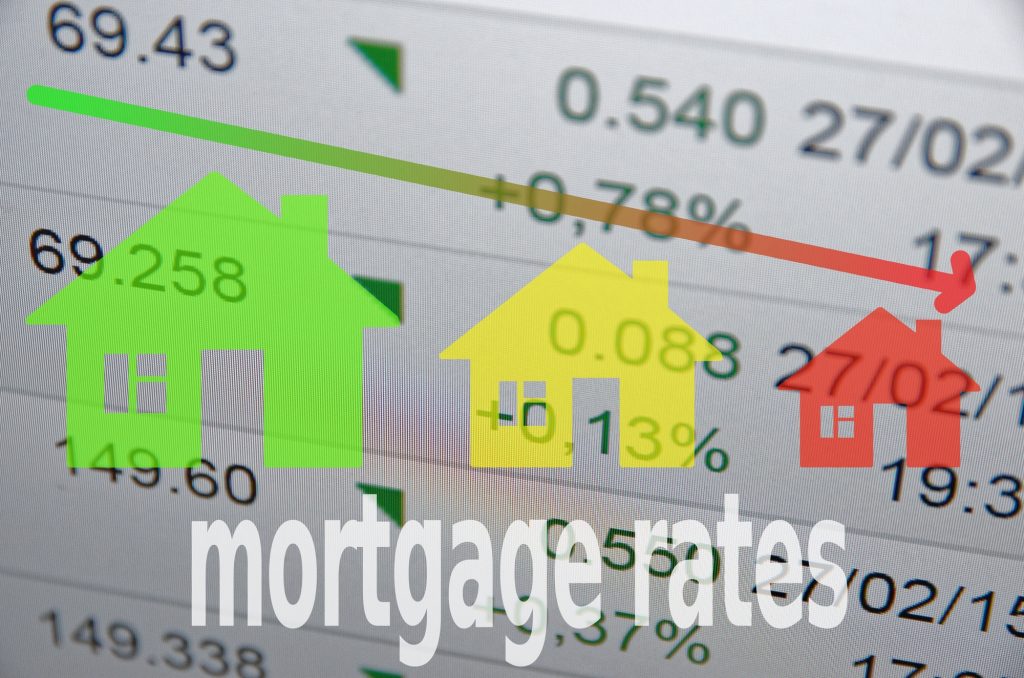
In real estate and personal finance, few elements wield as much influence over homeownership dreams as mortgage rates. Whether you’re a seasoned homeowner or a first-time buyer, understanding what factors dictate these rates is paramount. From economic indicators to personal financial health, many variables come into play, shaping the trajectory of mortgage rates. This comprehensive guide delves deep into the intricate world of mortgage rates, uncovering the key factors that sway them.
Personal Factors That Affect Mortgage Rates
Personal factors play a significant role in determining mortgage rates, as they provide lenders with insights into the borrower’s financial stability and ability to repay the loan. Here are some personal factors that can influence mortgage rates:
#1 Credit Score
Perhaps the most crucial personal factor is your credit score, which reflects your creditworthiness based on your credit history. Lenders use this score to assess the risk of lending to you. A higher credit score typically results in lower mortgage rates, while a lower score may lead to higher rates or difficulty obtaining a mortgage.
Lower mortgage rates are available to homebuyers with credit scores of 740 and higher, whereas borrowers with lower credit scores between 700 and 739 tend to have slightly higher mortgage rates. With a credit score between 620 and 699, mortgage rates are even higher, and borrowers may find it challenging to get approved for a higher loan.
Credit scores below 620 leave borrowers with even higher interest rates and fewer options. At this level, most loans are insured or guaranteed by the government.
#2 Loan-to-Value Ratio
The loan-to-value ratio measures the mortgage amount to the home’s price or value. The size of the down payment affects the loan-to-value ratio. For example, a larger down payment results in a smaller loan-to-value ratio, while a smaller down payment results in a larger loan-to-value ratio.
Many lenders consider a loan-to-value ratio of over 80% high risk, resulting in a higher mortgage rate and the homebuyer paying for mortgage insurance.
#3 Income Stability
Lenders prefer borrowers with stable and predictable income sources, indicating their ability to make consistent mortgage payments. Those with a steady employment history and a reliable income stream may qualify for lower rates than those with irregular income or employment gaps.
#4 Debt-to-Income (DTI) Ratio
Your DTI ratio measures the proportion of your monthly gross income for paying debts, including the prospective mortgage payment. Lenders consider a lower DTI ratio favorable, suggesting you have sufficient income to cover your debts comfortably. A lower DTI ratio can lead to lower mortgage rates.
#5 Down Payment Amount
The size of your down payment can impact your mortgage rate. A larger down payment typically signifies lower risk for the lender, as it reduces the loan-to-value (LTV) ratio. Borrowers who can make a sizable down payment may qualify for lower interest rates than those with minimal down payments.
#6 Loan Term
The loan term, such as 15 or 30 years, can influence the mortgage rate. Shorter loan terms often come with lower interest rates but higher monthly payments, while longer loan terms may have higher rates but lower monthly payments.
#7 Property Type and Use
The type of property you’re purchasing, and its intended use can affect your mortgage rate. Owner-occupied properties generally qualify for lower rates than investment properties or vacation homes, as they pose less risk to lenders.
Some types of loans that can carry a higher mortgage rate are:
- Cash-out refinances.
- Adjustable-rate mortgages.
- Loans on manufactured homes.
- Condos.
- Investment properties.
These types of mortgages and property types are considered riskier, leading lenders to increase the interest rate.
#8 Financial Reserves
Lenders may consider your financial reserves, such as savings and investments, to measure your ability to weather financial challenges. Borrowers with substantial reserves may be viewed more favorably and could potentially qualify for lower rates.
Related: Tips to Get the Best Interest Rate on Your Mortgage
Broader Economic Factors That Effect Mortgage Rates
Broader economic factors play a pivotal role in determining mortgage rates, as they influence the overall cost of borrowing and the risk perception of lenders. Here are some key economic factors that affect mortgage rates:
#1 Economy Growth
The overall health and trajectory of the economy can impact mortgage rates. Strong economic growth typically correlates with higher mortgage rates, as lenders anticipate increased loan demand and higher inflationary pressures. Conversely, economic downturns or recessions may prompt central banks to implement accommodative monetary policies, resulting in lower mortgage rates to stimulate borrowing and economic activity.
#2 Inflation
Inflation refers to the rate at which the general level of prices for goods and services rises, eroding purchasing power over time. Mortgage lenders consider inflation expectations when determining interest rates. Inflationary pressures can lead to higher mortgage rates as lenders seek to offset the diminished value of future loan repayments.
#3 Employment and Wage Growth
Employment levels and wage growth are critical indicators of economic health and consumer spending power. A robust job market and rising wages can bolster consumer confidence and fuel demand for housing, potentially leading to higher mortgage rates. Conversely, elevated unemployment rates or stagnant wage growth may exert downward pressure on mortgage rates as central banks seek to support economic recovery.
#4 Housing Market Conditions
Supply and demand dynamics in the housing market can influence mortgage rates. Strong demand for homes coupled with limited housing inventory may exert upward pressure on home prices, leading to higher mortgage rates. Conversely, a surplus of available homes or a slowdown in housing demand could result in lower mortgage rates as lenders compete for borrowers.
#5 Global Economic Trends
Global economic trends and events can influence mortgage rates. Geopolitical tensions, trade disputes, and economic instability in significant economies can impact investor sentiment and global financial markets. Changes in global interest rates or shifts in investor preferences for safe-haven assets may indirectly affect mortgage rates in domestic markets.
#6 Market Sentiment and Investor Behavior
Mortgage rates are also influenced by market sentiment and investor behavior. Investor demand for mortgage-backed securities (MBS) in the secondary market, which fund most mortgage loans, can impact mortgage rates. Positive economic news or investor optimism may drive up rates, while adverse developments or risk aversion could lead to lower rates.
Does the Federal Reserve Set Mortgage Rates?
The Federal Reserve is not involved in setting mortgage rates. It does, however, set the rate at which commercial banks borrow and lend their excess reserves to each other overnight. These changes are a result of broader movements within the economy. Which, in part, influences mortgage interest rates set by lenders. While mortgage rates and the Federal Reserve move independently, they generally move in the same direction.
Do All Lenders Have the Same Mortgage Rates?
Mortgage rates vary depending on the lender. Some lenders are more willing to take risks, while others have a lower appetite for risk. Additionally, different business structures and overhead costs can result in some lenders offering more attractive rates. The supply and demand of mortgage applications can also influence interest rates. When lenders receive an abundance of mortgage applications, they may raise interest rates. Conversely, they may lower interest rates when not receiving enough applications.
Conclusion
Mortgage rates are a barometer of economic health and financial stability, embodying the intricate interplay of macroeconomic factors, market dynamics, and individual financial profiles. By unraveling the mysteries behind mortgage rate determination, prospective homebuyers and homeowners alike can navigate the complex real estate financing landscape with greater insight and confidence. Understanding these factors empowers individuals to make informed decisions in a landscape of shifting economic tides, ensuring that their homeownership dreams remain within reach, irrespective of the prevailing mortgage rate climate.
Marimark Mortgage
Marimark Mortgage is based in Tampa, Florida, and serves the mortgage needs of homebuyers, homeowners, and investors in Florida, Virginia, and Pennsylvania.
We specialize in mortgages for first-time homebuyers, conventional home mortgages, refinance loans, reverse mortgages, and FHA, VA, and USDA mortgage options. We’ve worked extensively with cash-out refinancing and help clients to lower their monthly mortgage payments.
To get started with a mortgage to buy your next home, please fill out our Quick Mortgage Application or contact us.

The Marimark Mortgage Newsletter will keep you informed with important events in the mortgage industry that could impact your finances.
We especially focus on ways to save money on your current and future mortgages. And, we continually share the information we share with our clients, because we believe informed consumers are the best consumers.
Real estate agents, and other professionals in the industry, will receive an ongoing wealth of information that will help them serve their clients.